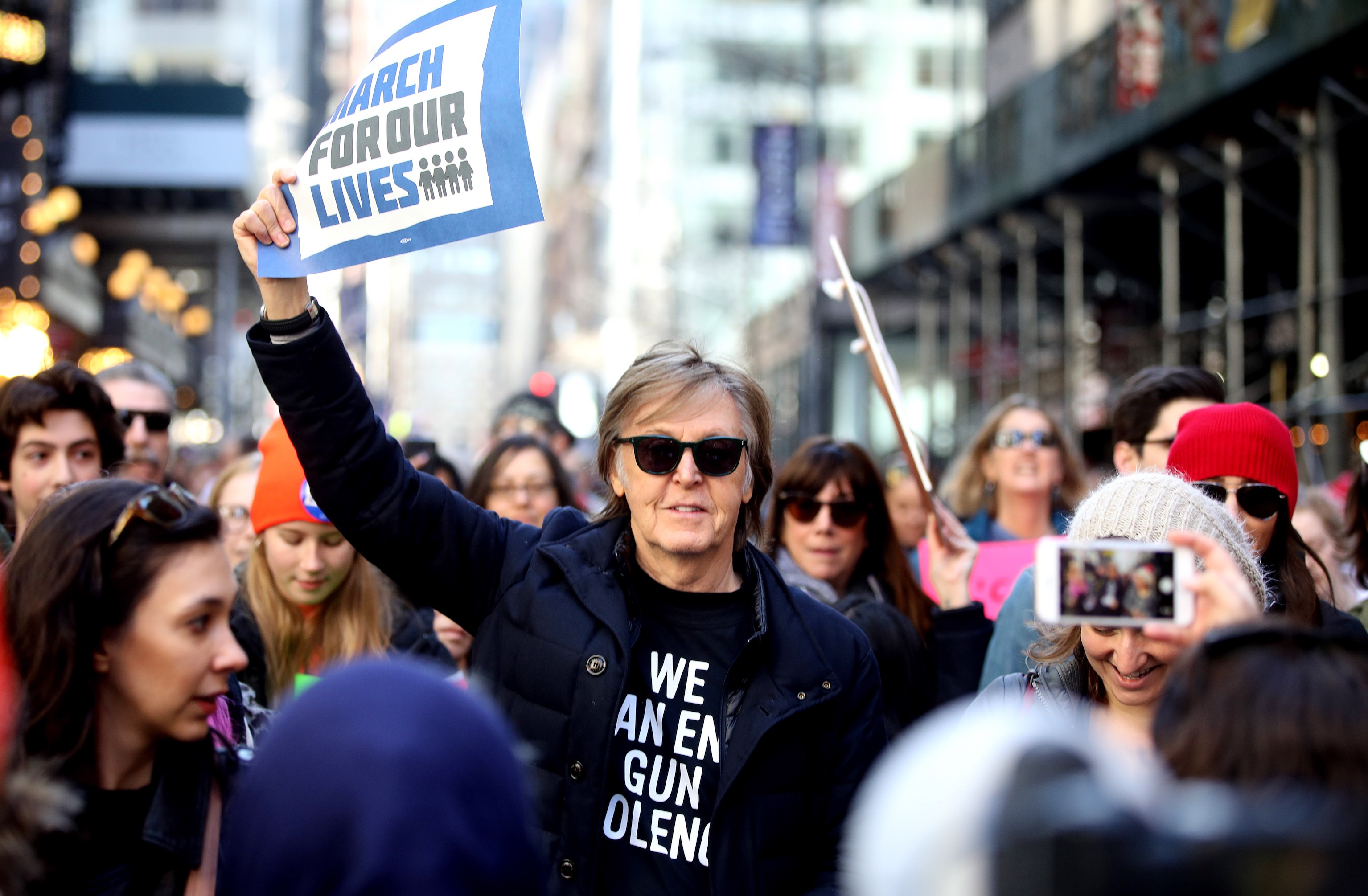
5 Times Paul McCartney Voiced His Politics in His Music
Paul McCartney isn’t usually assertive about his political beliefs but isn’t afraid to voice his opinions when necessary. Since he is a musician, his politics are primarily expressed within his music in either subtle or more obvious ways.
Here are 5 times Paul McCartney expressed his politics in his music
‘Big Boys Bickering’

Paul McCartney usually isn’t aggressive about his politics, but he didn’t hold back with “Big Boys Bickering.” According to The Ringer, the song was released in 1992 in response to President George H. W. Bush’s refusal to sign an ecological treaty at the 1992 Earth Summit. It’s a challenging song to find these days as it was banned by the BBC, several U.S. radio stations and was edited out of an MTV performance.
However, the track wasn’t banned due to its message. What drove many outlets to ban the song was its use of the f-word. McCartney typically strays away from profanity, but “Big Boys Bickering” included six f-bombs.
‘Blackbird’
The Beatles publicly stood against segregation and expressed their support for racial equality. “Blackbird” debuted in 1968’s The White Album and was written by McCartney to address the U.S. civil rights movement. In an interview with GQ, McCartney said the song was influenced by the footage he saw of two girls who were a part of the Little Rock nine.
“I was sitting around with my acoustic guitar, and I’d heard about the civil rights troubles that were happening in the 60s in Alabama, Mississippi, Little Rock, in particular,” McCartney explained. “So, that was in my mind, and I just thought, ‘It’d be really good if I could write something that if it ever reached any of the people going through those problems, it might kinda give them a bit of hope.’ So, I wrote ‘Blackbird.’”
‘Despite Repeated Warnings’
Paul McCartney is an activist for fighting climate change. “Despite Repeated Warnings” from 2018’s Egypt Station is a criticism of the lackadaisical approach that politicians worldwide have shown toward addressing environmental issues. The idea for the track came to him after reading a newspaper article about climate change that used the phrase, “despite repeated warnings…”
The song is about a captain who knew his ship could sink but did nothing to address it. Now, the boat is sinking, but it’s too late. It’s a metaphor for the environmental situation that McCartney turned into a musical story.
‘Ebony and Ivory’
“Ebony and Ivory” is a duet between McCartney and Stevie Wonder from 1982’s Tug of War. The title refers to the black and white keys on a piano and how neither can create harmony without the other. It’s a not-so-subtle way of calling for peace and unity between people of different races. While it should be a clear message for many, McCartney later said it was still a message many needed to hear.
“When I wrote the song, I thought, ‘Maybe we don’t need to keep talking about black and white. Maybe the problem is solved,’” he shared. “‘Maybe I’ve missed the boat; maybe it should have been written in the ‘60s.’ But after I’d written it and we recorded it, you look around, and there’s still tension.”
‘Give Ireland Back to the Irish’
“Give Ireland Back to the Irish” was the debut single of Paul McCartney and Wings in 1972. The song was written in response to the events of Bloody Sunday when British soldiers killed 13 civil rights protestors in Northern Ireland. The song received backlash from the U.K. and was banned by the BBC. However, it still reached No. 16 on the U.K. charts and No. 21 on the U.S.
While McCartney was raised in England, he has familial connections to Ireland and was disturbed by England’s role in Bloody Sunday. Despite the song’s controversy, McCartney and Wings played the tune throughout their first tour.


